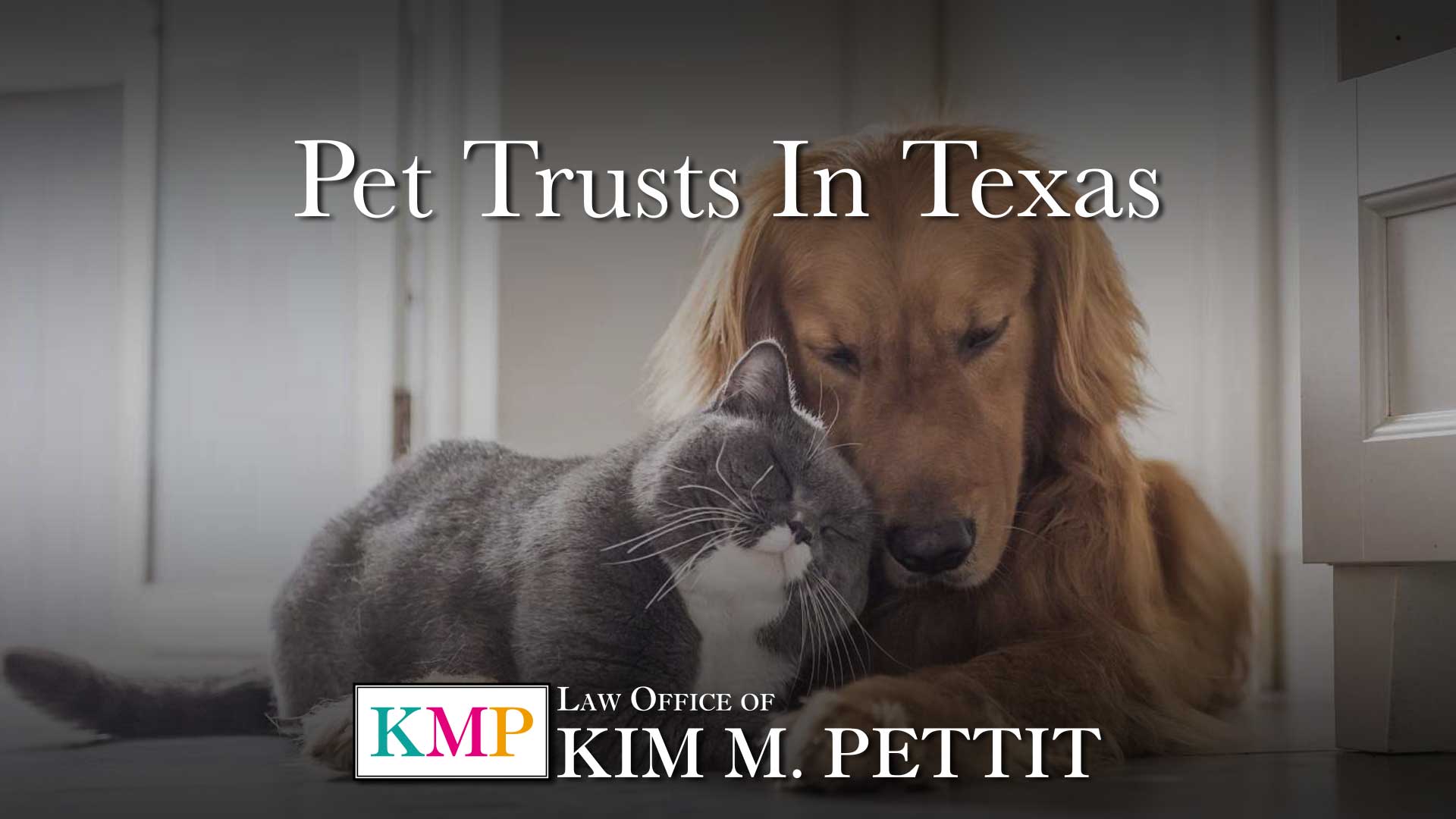My mother loved cats. A lot! Whether they were young or old, male or female, healthy or sick, her mission in life was to take care of cats, and she did that really well. My mother had a name for every one of the neighborhood cats, and they knew they could get shelter and a good meal at her house. She even took them to get their shots.
As she grew older, my mother couldn’t take care of her furry companions by herself. Fortunately, my brother lived with her and was able to help. But what if my mother didn’t have someone to help her with the cats? Who would take care of her “babies” when she could not?
Did you know that just as you can create a trust for your children, you can establish a trust for your living pet(s)? Well, you can! A trust is a legal arrangement that provides (1) for the use of your property, (2) for the benefit of a certain beneficiary or beneficiaries, (3) for an intended purpose, (4) for a specific period of time, (5) under terms you choose, and is to be managed by a person or entity you appoint (the trustee). You can set up a pet trust to be effective immediately or upon your death or disability.
The First Step
When you establish a pet trust, the most important thing to do is to select a trustee – a person who will handle everything according to your wishes and instructions. The trustee should be someone who is ready, willing, and able to take care of your pet just as you would.
Hopefully, the trustee you select has been to your home and is familiar with your pet, and your pet is familiar with the trustee. You want your trustee to love, interact with, and take care of your pet just as you do. It is also a good idea to have at least one successor trustee in case the original trustee can no longer serve in that capacity.
The trust can be for any kind of animal, including your horse, rabbit, snake, hamster, bird, turtle, etc. – not just cats and dogs. The trust can only be created for pets that are alive at the time the trust is created. It is a good idea to include a photograph and a physical description of your pet in the trust. And if your pet is chipped, you should mention the chip number.
You can set up the trust so that it takes care of more than one pet at a time. A pet trust in Texas ends on the death of the pet. If the trust was created to provide for more than one pet, then the trust would end upon the death of the last surviving pet. The pet trust cannot continue indefinitely, so as to cover your current pet’s offspring or other pets that the trustee may acquire.
Pet Trust – Pet Considerations
When forming a pet trust, consider the following about your pet:
- Current lifestyle and routine
- Preferences
- Pet peeves (because, yes, they have them)
- Age
- Health (are there current health issues or anticipated age-related issues?)
- Who will be the trustee/caregiver for the pet?
- What happens when your pet passes away? (buried or cremated)
Pet Trust – Cost Considerations
How much money will be in the trust? Consider these costs:
- Food (favorite food, dietary restrictions)
- Veterinary expenses (shots, checkups, emergency services, chipping)
- Toys and bed
- Grooming (bath, haircut, manicure/pedicure)
- Training (obedience class)
- Boarding costs and pet sitting
Is There Such a Thing as Too Much Money for a Pet Trust?
You may have heard stories about people leaving a lot of money to their pets. Be aware that if a family member thinks you left too much money for your pet in a trust, it may create a problem. The pet trust should clearly identify the pet(s) for whom it is created.
Also consider what will happen to any funds remaining in the trust after your pet passes away. Will the money go to another beneficiary, such as a family member? Or will the money go to an animal-related organization or some other charity? You need to be clear in your pet trust about what you want to happen with the remaining money.
To learn more about a pet trust in Texas, please request a consultation below or call the Law Office of Kim M. Pettit at (210) 558-4572. We look forward to hearing from you.






